Related Research Articles

The Sicilian Vespers was a successful rebellion on the island of Sicily that broke out at Easter 1282 against the rule of the French-born king Charles I of Anjou, who had ruled the Kingdom of Sicily since 1266. The revolt came after twenty years of Angevin rule over Sicily, whose policies were deeply unpopular among the Sicilian populace.
Omertà is a Southern Italian code of silence and code of honor and conduct that places importance on silence in the face of questioning by authorities or outsiders; non-cooperation with authorities, the government, or outsiders, especially during criminal investigations; and willfully ignoring and generally avoiding interference with the illegal activities of others. It originated and remains common in Southern Italy, where banditry or brigandage and Mafia-type criminal organizations have long been strong. Similar codes are also deeply rooted in other areas of the Mediterranean, including Malta, Crete in Greece, and Corsica, all of which share a common or similar historic culture with Southern Italy.
"Mafia" is an informal term that is used to describe criminal organizations that bear a strong similarity to the original "Mafia": the Italian Mafia. The central activity of such an organization would be the arbitration of disputes between criminals as well as the organization and enforcement of illicit agreements between criminals through the use of or threat of violence. Mafias often engage in secondary activities such as gambling, loan sharking, drug-trafficking, prostitution, and fraud.
The Sicilian Mafia or Cosa Nostra, also referred to as simply Mafia, is an Italian Mafia-terrorist-type criminal society originating on the island of Sicily and dating to at least the 19th century. It is an association of gangs which sell their protection and arbitration services under a common brand. The Mafia's core activities are protection racketeering, the arbitration of disputes between criminals, and the organizing and oversight of illegal agreements and transactions.
The Stidda is a Sicilian & Maltese Mafia-type criminal organization and criminal society centered in the central-southern part of Sicily & Malta.
Salvatore "Ciaschiteddu" Greco was a powerful mafioso and boss of the Sicilian Mafia Family in Ciaculli, an outlying suburb of Palermo famous for its citrus fruit groves, where he was born. His nickname was "Ciaschiteddu" or "Cicchiteddu", translated from the Sicilian alternatively as "little bird" or as "wine jug".
A crime family is a unit of an organized crime syndicate, particularly in Italian organized crime and especially in the Sicilian Mafia and Italian American Mafia, often operating within a specific geographic territory or a specific set of activities. In its strictest sense, a family is a criminal gang, operating either on a unitary basis or as an organized collection of smaller gangs. In turn, a family can be a sole "enterprise" or part of a larger syndicate or cartel. Despite the name, most crime families are generally not based on or formed around actual familial connections, although they do tend to be ethnically-based, and many members may in fact be related to one another.
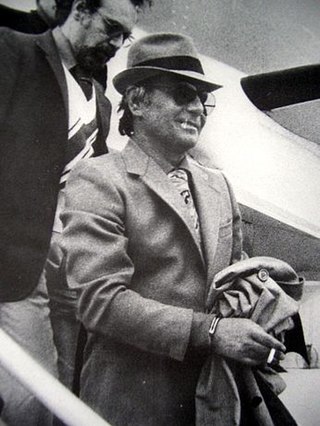
Angelo La Barbera was a powerful member of the Sicilian Mafia. Together with his brother Salvatore La Barbera he ruled the Mafia family of Palermo Centro. Salvatore La Barbera sat on the first Sicilian Mafia Commission that was set up in 1958 as the capo mandamento for Mafia families of Borgo Vecchio, Porta Nuova and Palermo Centro.
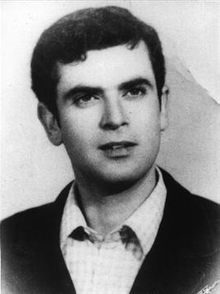
Leonardo Vitale was a member of the Sicilian Mafia who was one of the first to become an informant, or pentito, although originally his confessions were not taken seriously. Vitale was a "man of honour" or member of the Altarello di Baida cosca or family, Altarello being a small village just outside Palermo.
Calcedonio Di Pisa, also known as Doruccio, was a member of the Sicilian Mafia. He was the boss of the Mafia family in the Noce neighbourhood in Palermo and sat on the first Sicilian Mafia Commission, the coordinating body of Cosa Nostra in Sicily.
A series of meetings between Sicilian Mafia and American Mafia members were allegedly held at the Grand Hotel et des Palmes in Palermo, Sicily, between October 12–16, 1957. Also called the 1957 Palermo Mafia summit, the summit discussed the international illegal heroin trade in the French Connection. The FBI believed it was this meeting that established the Bonanno crime family in the heroin trade.
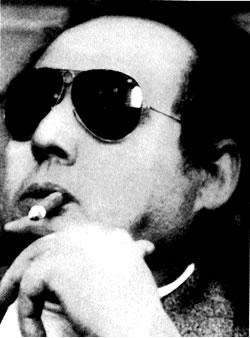
The Corleonesi Mafia clan was a faction within the Corleone family of the Sicilian Mafia, formed in the 1970s. Notable leaders included Luciano Leggio, Salvatore Riina, Bernardo Provenzano, and Leoluca Bagarella.

The Greco Mafia family is historically one of the most influential Mafia clans in Sicily and Calabria, from the late 19th century. The extended family ruled both in Ciaculli and Croceverde Giardini, two south-eastern outskirts of Palermo in the citrus growing area and also rural areas of Calabria where they controlled the olive oil market. Members of the family were important figures in the Sicilian Cosa Nostra and Calabrian 'Ndrangheta. Salvatore "Ciaschiteddu" Greco was the first ‘secretary’ of the Sicilian Mafia Commission, while Michele Greco, also known as The Pope, was one of his successors.
Gerlando Alberti, nicknamed 'u Paccarè, was a member of the Sicilian Mafia. He belonged to the Porta Nuova family in Palermo headed by Giuseppe Calò.
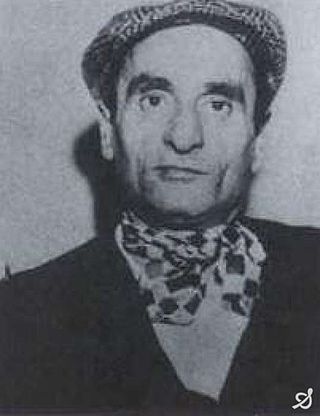
Pietro Torretta was a member of the Sicilian Mafia. He was the boss of the Mafia family in the Uditore district in Palermo and one of the protagonists in the First Mafia War. He was initially considered to be the man behind the Ciaculli massacre.
A capodecina is the head of a decina, a branch within a Sicilian Mafia family. In the larger families, a capodecina is selected by the head of the family and coordinates units of about ten people.
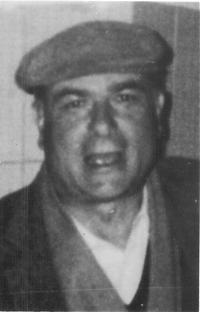
Giuseppe Morabito, nicknamed 'u tiradrittu, is an Italian criminal and a historical boss of the 'Ndrangheta, a Mafia-type organisation in the region of Calabria (Italy). He hails from Africo in the Locride. He was a fugitive from 1992 and included in the list of most wanted fugitives in Italy until his arrest in February 2004.

The 'ndrina is the basic unit of the 'Ndrangheta of Calabria, made up of blood relatives, and is the equivalent of the Sicilian Mafia’s "family" or cosca. The word derives from the Greek, meaning "a man who does not bend". Each 'ndrina is "autonomous on its territory and no formal authority stands above the 'ndrina boss." The 'ndrina is usually in control of a small town or a neighbourhood in larger cities, even outside Calabria, in cities and towns in the industrial North of Italy in and around Turin and Milan.
This page lists books about mafia organizations all over the world:
The Ciaculli massacre on 30 June 1963 was caused by a car bomb that exploded in Ciaculli, an outlying suburb of Palermo, killing seven police and military officers sent to defuse it after an anonymous phone call. The bomb was intended for Salvatore "Ciaschiteddu" Greco, head of the Sicilian Mafia Commission and the boss of the Ciaculli Mafia family. Mafia boss Pietro Torretta was considered to be the man behind the bomb attack.
References
- Blok, Anton (1974/1988). The Mafia of a Sicilian village 1860-1960. A study of violent peasant entrepreneurs, Long Grove (IL): Waveland Press. ISBN 0-88133-325-5.
- Dickie, John (2004). Cosa Nostra. A history of the Sicilian Mafia , London: Coronet. ISBN 978-0-340-82435-1.
- Servadio, Gaia (1976). Mafioso. A history of the Mafia from its origins to the present day, London: Secker & Warburg. ISBN 0-8128-2101-7.